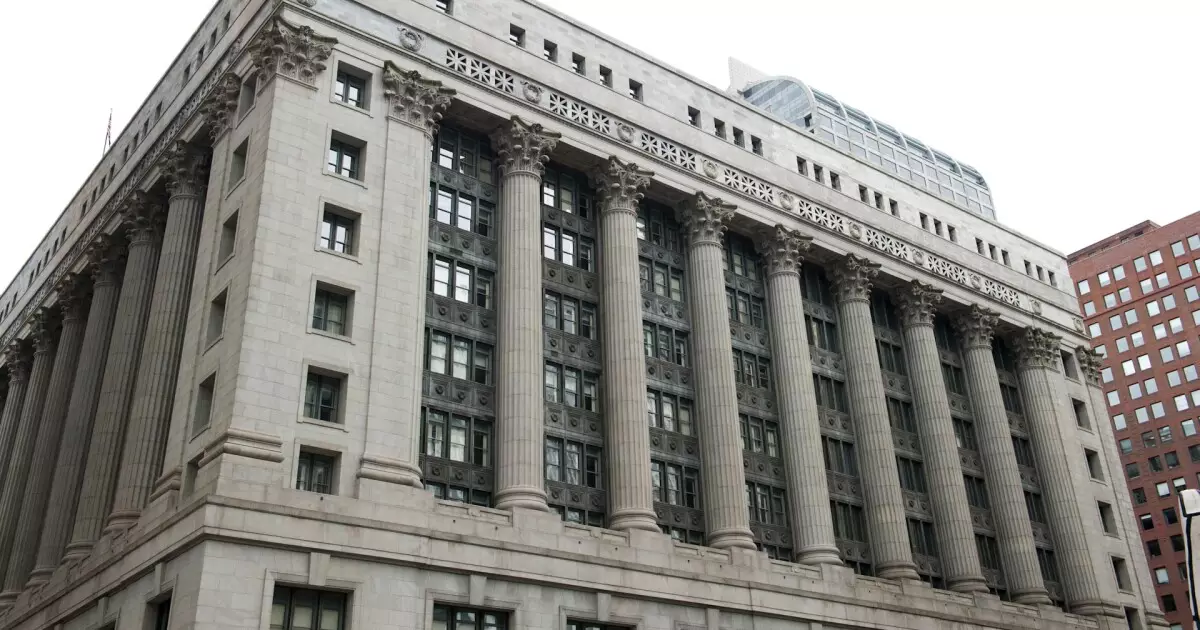The recent vote by the Chicago City Council to reject Mayor Brandon Johnson’s proposed $300 million property tax increase highlights a critical moment in the city’s fiscal governance. This decision was taken without debate, signaling an urgent demand for fiscal responsibility amidst rising financial pressures. The council’s unanimous resistance came just days after Kroll Bond Rating Agency raised alarms by placing Chicago’s general obligation bond rating on “Watch Downgrade,” suggesting a precarious financial footing as a significant budget gap looms. The proposed tax hike was intended to alleviate a staggering $982 million shortfall in the fiscal 2025 budget.
The operation of the city council—or lack thereof, during this vote—reflects not only the rising tensions between the Mayor’s office and public representatives but also a broad unease regarding the city’s fiscal health. The lack of discussion around such a significant tax increase indicates a consensus amongst council members that increases in property tax, traditionally viewed as a robust revenue stream, may not be the singular solution needed to bridge the city’s budget gap.
The watch status from KBRA reveals the potential repercussions of financial decisions at the municipal level. According to senior analysts, the agency will be closely monitoring the dynamics between the city administration and the City Council as they pursue alternative paths to a balanced budget by the year-end deadline. This situation serves as a reminder that Chicago must navigate a delicate balance between political will within its governing bodies and the stringent demands of fiscal responsibility demanded by credit rating agencies.
The cautionary stance from KBRA indicates an urgent need for a comprehensive strategy that focuses on long-term solutions rather than superficial fixes. The budget proposed by Johnson suggests a reliance where approximately 20% of the solutions are categorized as one-time fixes. This approach may provide temporary relief but ignores structural challenges that plague the city, particularly those pertaining to underfunded public pension systems, which have historically been a significant drain on municipal resources.
In light of the property tax rejection, analysts such as Howard Cure from Evercore Wealth Management have posited that Chicago needs to address its pension obligations proactively and consider broader revenue solutions. The Civic Federation of Chicago has indicated there are numerous alternatives for increasing city revenue without raising property taxes. Suggestions range from implementing service taxes to more refined approaches such as a graduated real estate transfer tax.
Nonetheless, these options may require legislative changes at the state level, which adds another layer of complexity to the city’s fiscal planning. Without state-level support or regulatory shifts, these proposed alternative revenue streams may remain just that—proposals without practicality. The city’s financial landscape is further complicated by looming concerns regarding how Illinois will address its own budgetary deficits, as calls for austerity emerge from various quarters of state governance.
Considerations for Future Governance
Moving forward, the Chicago administration must navigate the tensions within existing structures while proactively seeking new revenue sources. City representatives have raised the possibility of personnel cuts, hiring freezes, and other operational adjustments as critical components of any overarching strategy, but with the prudent understanding that public services cannot be jeopardized.
Particularly in departments like public health and law enforcement, which are already facing operational strains, decisions about staffing and expenditures will require nuanced judgment. Alternatives such as reallocating federal pandemic relief funds also present both opportunity and risk, especially in light of possible changes in federal oversight and support.
As the Johnson administration deftly negotiates the thin line between fiscal necessity and political pressures, the interactions with both the City Council and state lawmakers will be crucial. The future financial stability of Chicago will greatly depend on creating viable long-term strategies rather than short-lived remedies, fostering collaborative dialogue amongst key stakeholders to truly transform how the city’s budget challenges are approached and resolved.
In essence, the path forward for Chicago is neither straightforward nor assured; it necessitates fresh thinking and a commitment to explore diverse avenues that ensure accountability at every level of governance, ultimately setting a sustainable precedent for urban financial management.


Leave a Reply